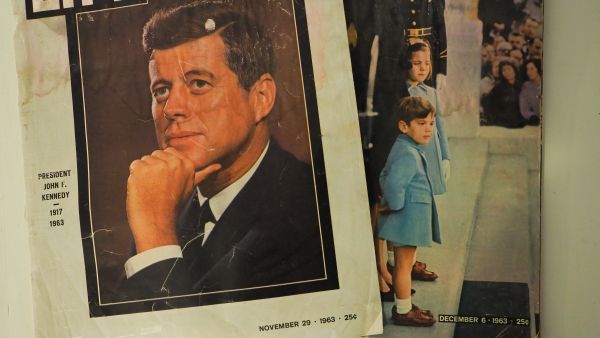Sixty years after the tragic assassination of President John F. Kennedy, the man who leaped onto the back of the presidential limousine in a desperate attempt to shield the president and first lady is finally opening up about that fateful day.
Clint Hill, the Secret Service agent assigned to Jacqueline Kennedy, was forever marked by the events of November 22, 1963.
In an interview with Radio Diaries, now 91-year-old Clint Hill reflected on his life before and after that six-second moment in Dallas, a period that has defined his identity ever since. "Before Dallas, I was known as just Clint Hill," he shared. "After that, I've been known as the man who climbed onto the president's car. That six-second period in Dallas, it's not an easy thing to live with."
Assigned to Jacqueline Kennedy in 1960, Hill experienced a level of personal connection with the Kennedys that set this assignment apart from his previous ones. President Kennedy, unlike his predecessors, knew the agents by their first names, inquiring about their personal lives and showing genuine interest. This relationship bred a deep respect among the Secret Service for the charismatic leader.
On that fateful day in Dallas, Hill found himself positioned on the running board of the follow-up car, just behind the presidential limousine. The excitement of the crowd turned to horror as he heard a loud noise, initially thinking it was a firecracker. But when he saw President Kennedy's reaction, he knew something was terribly wrong.
As the first shot rang out, Hill instinctively ran from the follow-up car onto the back of the limousine. He shielded the first lady as the tragic events unfolded, guiding her back into the vehicle after a second shot struck the president in the head. Hill vividly recalls thinking, "This wound is not survivable," as the limousine raced towards the hospital.
In the aftermath, guilt consumed Hill. In his book, "Five Days in November," he describes accompanying Jacqueline Kennedy, still in her bloodstained suit, to Lyndon B. Johnson's swearing-in aboard Air Force One. The weight of responsibility weighed heavily on him, asking himself, "How did I let this happen to her?"
The years that followed brought ongoing struggles with guilt and emotional trauma for Hill. There was no counseling or support for the Secret Service in those days, and Hill's emotional state after the assassination eventually led to health issues that forced his retirement in 1975.
Reflecting on the events, Hill appeared on an episode of "60 Minutes" in 1975, where he expressed lingering guilt. Despite being praised as a hero for saving Jacqueline Kennedy's life, Hill still blamed himself, believing he could have acted faster.
Today, Hill remains conflicted about being called a hero. While many agents credit him for inspiring their careers, he doesn't take comfort in the title. However, in recent years, he has found solace in opening up about his experiences. Alongside his wife, Lisa McCubbin Hill, he has authored four books about his time as a Secret Service agent, including a 60th-anniversary edition of "Five Days in November," released this month.
Hill encourages those struggling with PTSD to talk about their experiences, emphasizing the therapeutic value of opening up as the nation commemorates the 60th anniversary of JFK's assassination.







